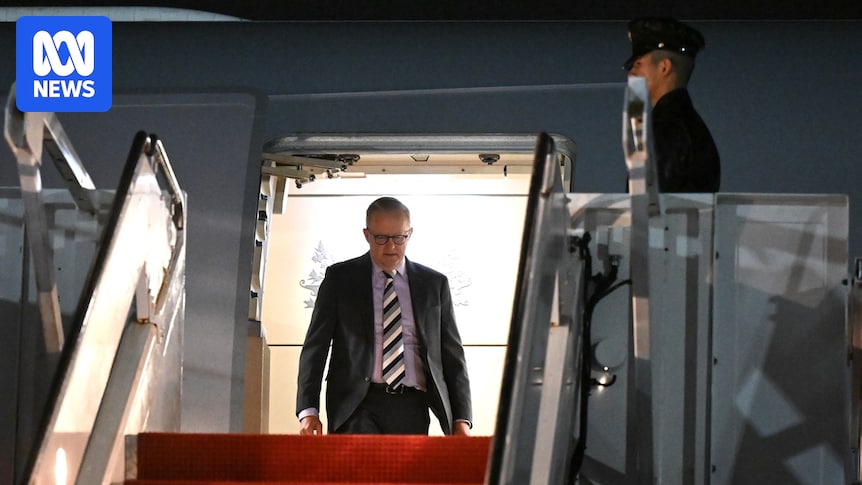
Prime Minister Anthony Albanese has embarked on a significant diplomatic mission to Malaysia, marking the commencement of a week-long overseas journey aimed at bolstering security and trade relations within the region. Albanese’s itinerary includes participation in the Association of Southeast Asian Nations (ASEAN) summit and the East Asia Summit in Kuala Lumpur, followed by a visit to South Korea for the Asia-Pacific Economic Cooperation (APEC) summit.
Speaking prior to his departure, Albanese emphasized the importance of these summits in addressing critical issues such as economic growth, security, and regional stability. “These forums come at a critical time,” he stated. “I look forward to engaging with our partners on trade, security, and global challenges.”
Meanwhile, U.S. President Donald Trump is also on a tour across Asia, with Malaysia as one of his key stops. Trump is scheduled to meet with Malaysian Prime Minister Anwar Ibrahim, oversee a peace agreement between Cambodia and Thailand, and attend the ASEAN leaders’ dinner. His tour will also take him to Tokyo for discussions with Japan’s new Prime Minister Sanae Takaichi, before concluding in South Korea with a high-stakes meeting with Chinese leader Xi Jinping amidst escalating trade tensions.
Strategic Engagements and Economic Diplomacy
President Trump’s visit to Malaysia follows his administration’s earlier decision to impose high tariffs on Southeast Asian nations, a move that has prompted regional leaders to seek dialogue on reducing trade barriers. Prime Minister Anwar expressed hope that his country could play a facilitative role in trade discussions between the U.S. and China. “If there is some sort of progress or achievement [between China and the US] …I would be very happy and I think Malaysians would be proud,” Anwar remarked.
Susannah Patton, Deputy Research Director and Program Director for Southeast Asia at the Lowy Institute, noted the unusual nature of a U.S. President attending the ASEAN summit, which has generated considerable excitement. “They want to establish a relationship with him [Donald Trump] in much the same way as our Prime Minister going to Washington wanted to use it as a way of putting the relationship on a firm footing,” she explained.
Australia’s Broader Regional Strategy
The Albanese government is keen to diversify Australia’s trade relationships beyond China and the U.S., aiming to strengthen ties with ASEAN nations through business, cultural, and educational exchanges. In 2022, businessman Nicholas Moore was commissioned to explore ways to enhance these connections. Moore, who will accompany Albanese to ASEAN, highlighted “significant opportunities to boost [Australia’s] trade relationship” in his report.
Associate Professor Ross Tapsell from the Australian National University pointed out the challenges facing Australia’s engagement in the region, as underscored in Moore’s report. “Our trade relationship with ASEAN remains underdone,” Tapsell stated, noting the decline in Southeast Asian language and exchange programs in Australian universities and schools. “To put it in housing terms, the letterbox and front porch look nice and shiny, but inside the house is starting to fall apart.”
Albanese reiterated the importance of these summits for enhancing trade options, emphasizing that “one in four Australian jobs rely on trade.”
Balancing Global Powers
Southeast Asian leaders have long advocated for maintaining neutrality between the U.S. and China. Last year, Malaysia’s Prime Minister Anwar underscored his country’s commitment to being friendly with all nations, including China. This sentiment is echoed by Associate Professor Tapsell, who noted a shift in regional perceptions towards China and Russia.
From Australia’s perspective, concerns about China’s military expansion and its activities in the South China Sea persist. Susannah Patton emphasized the need for Western nations to maintain an active presence in Southeast Asia to prevent over-reliance on China. “That is why they [Southeast Asian nations] are so keen to have the US President there,” Patton said. “Australia’s priority should be about partnership and providing them with options.”
As both Albanese and Trump navigate their respective tours, the outcomes of their engagements could significantly influence regional dynamics and global economic relations.






